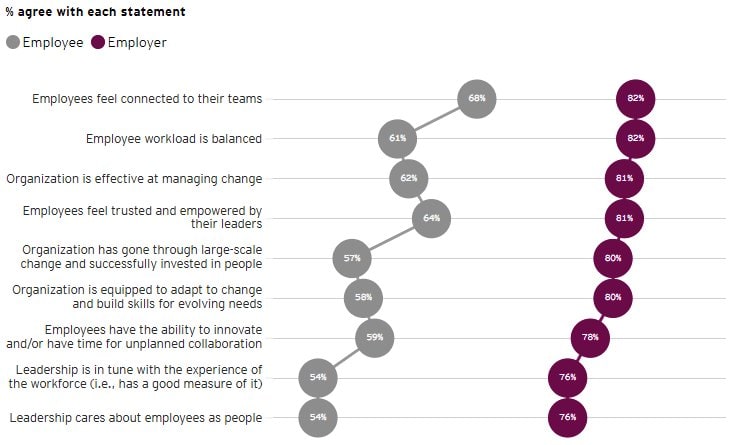Pay, along with employees’ well-being concerns and preference for remote workplace set-up, were found to prolong workplace tensions, posing difficulties in attracting and retaining talent, according to Ernst & Young’s 2023 Work Reimagined Survey.
Out of more than 17,000 employees surveyed, over 35% are likely to leave their jobs in the next 12 months, with Gen Zs and millennials found to be the most likely ones to quit.
On the other hand, trust, empowerment, and care reduce the likelihood of employees quitting by 40%.
Balance of power in the workplace remains in the employees’ favour amid slowing economic growth, the survey says, in comparison to pre-pandemic levels where 53% of respondents viewed that workplace power rests on employers (see Figure 1). In 2022, the gap stood at 44% for employers and 37% for employees, while in 2023, a 46% employer power versus 32% for employees stand.
Figure 1: Employees and employers have divergent views on talent, culture and leadership

Note: Agree includes “agree” and “strongly agree”
Further, the survey found a disconnect between employee and employer expectations and motivations, with a majority of employers believing that slowing economic growth is reducing employees’ likelihood to quit. Meanwhile, 47% of employees agree – and in fact, 22% of employees disagree – leaving employers at risk of underestimating the continued fluidity of the labour market.

“Employers need to preserve their critical talent by co-creating the future of the organisation with strategies that reflect employees’ priorities and ultimately build trust and better retention,” says EY People Advisory Services deputy leader and Workforce Advisory leader Liz Fealy.




